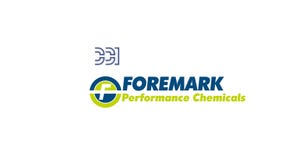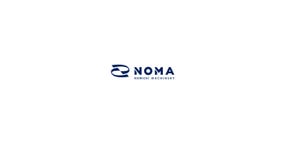May 14, 2009
The global chemical industry has made substantial progress in implementing its product stewardship commitments under the Strategic Approach to International Chemicals Management (SAICM), but acknowledges there is still much work to do and thus is accelerating its efforts, says the International Council of Chemical Associations (ICCA). The conclusion was part of a new progress report ICCA presented to the Second Session of the International Conference on Chemicals Management (ICCM-2) in Geneva this week.
ICCA and its members have engaged for decades in industry-driven activities to improve the safe management of chemicals (product stewardship). They include crucial initiatives such as Responsible Care, the High Production Volume (HPV) testing program, and the Long-range Research Initiative (LRI) to strengthen the scientific basis for public policy. Since the launch of its Responsible Care Global Charter and the Global Product Strategy at ICCM-1 in 2006, ICCA has achieved additional measurable success across the full spectrum of SAICM policy objectives. In particular, the report notes that ICCA has:
• Defined and adopted as a “best practice” a base set of information adequate to conduct chemical safety assessments.
• Developed a set of global product stewardship guidelines for use by member associations and companies, to accelerate the implementation of their chemical management programs.
• Provided capacity building projects in a number of developing countries in Africa, Asia-Pacific, Eastern Europe, and Latin America and in countries with economies in transition, to implement the best safety assessment practices and risk management procedures.
• Secured support from more than 75 additional global company CEOs for the Responsible Care Global Charter and Global Product Strategy. With the 79 companies presented at ICCM-1, the total number of global chemical companies committed is now more than 150.
• Extended the Responsible Care network to include Russia and other countries in Eastern Europe; established a pilot project with Chinese national companies; and is exploring an initiative in the Gulf region.
• Established new partnerships with governments in developing countries.
• Driven additional scientific inquiry to address new and emerging health and environmental concerns under the Long-Range Research Initiative.
• Reported global industry progress in a transparent manner through the Responsible Care status reports and shared relevant product information with co-producers, governments and the public.
• Furthered its work across the value chain so suppliers and customers can effectively evaluate risks and enhance their own health and environmental performance.
ICCA president Christian Jourquin, CEO of Solvay, said, "The report shows the global chemical industry has proved its worth through its actions. To date we have developed best practice guidance for assessing the safety of chemicals. More specifically, this includes a “base-set” of hazard and exposure information for chemicals in commerce and a technical guidance handbook for companies to help them define safe use conditions for chemicals. This guidance particularly addresses small and medium-sized companies, especially in developing economies, and will be tested in a pilot during 2009 with companies from all regions."
By demonstrating that chemicals are manufactured, handled, and used in a safe and environmentally-sound manner throughout their life cycles, the industry will help ensure its products continue to be available to meet next-generation needs for more energy-efficient transportation, renewable energy generation, greater agricultural productivity, and much more. In short, ICCA believes the path to a sustainable future is built with chemistry.
ICCA’s product stewardship efforts will become increasingly transparent. For example, the Global Product Strategy includes a 2018 target date for companies to fully assess the safety of their chemicals in commerce and an interim 2012 target for companies to report on and openly discuss their progress. In addition, ICCA is committed to report on approximately 15-20 more product stewardship performance metrics in the future, further allowing the global community to evaluate chemical industry progress.
ICCA believes the most effective chemicals management performance can be achieved through a combination of regulation and industry-driven initiatives, and advocates for a balanced approach. Reflecting its balanced philosophy, at ICCM-2, ICCA is hosting multi-stakeholder events on SAICM progress and reporting modalities, both of which feature panelists and participants drawn from the full range of governmental and non-governmental stakeholders. In addition, ICCA participates in several important ICCM-2 events including high-level roundtable discussions on finance and health, the plenary session, and the UNEP news conference.
Alain Perroy, ICCA council secretary, concluded, “The new report of the global chemical industry, its leadership at ICCM-2, its renewed efforts for capacity building, and the development of many concrete activities worldwide, remind stakeholders that chemical industry actions go far beyond compliance with regulatory systems, in order to achieve continuous improvement in the safe management, production, and use of chemicals and contribute to the goals of the World Summit on Sustainable Development.”
ICCA’s full report is available online at www.icca-chem.org.
You May Also Like


